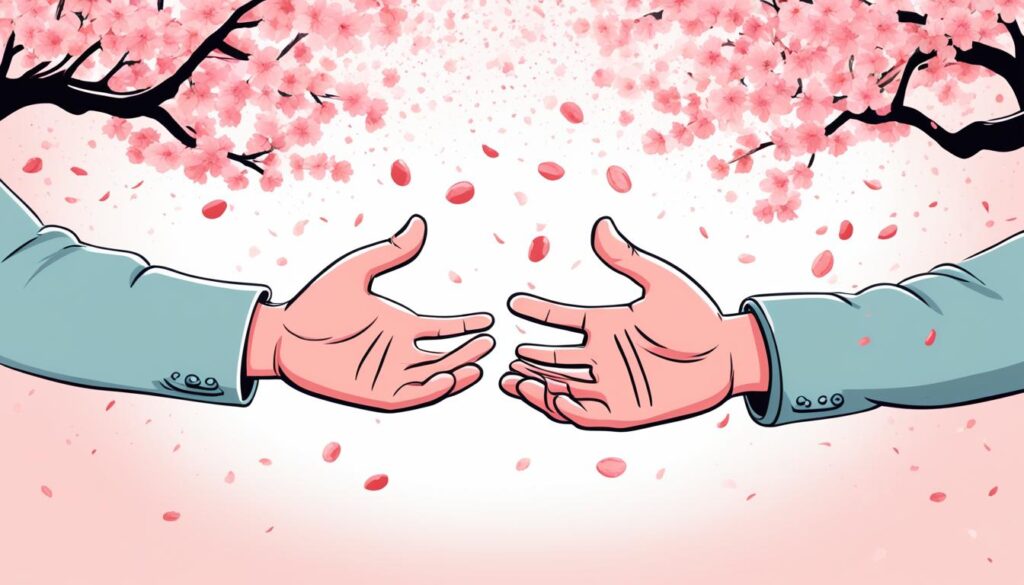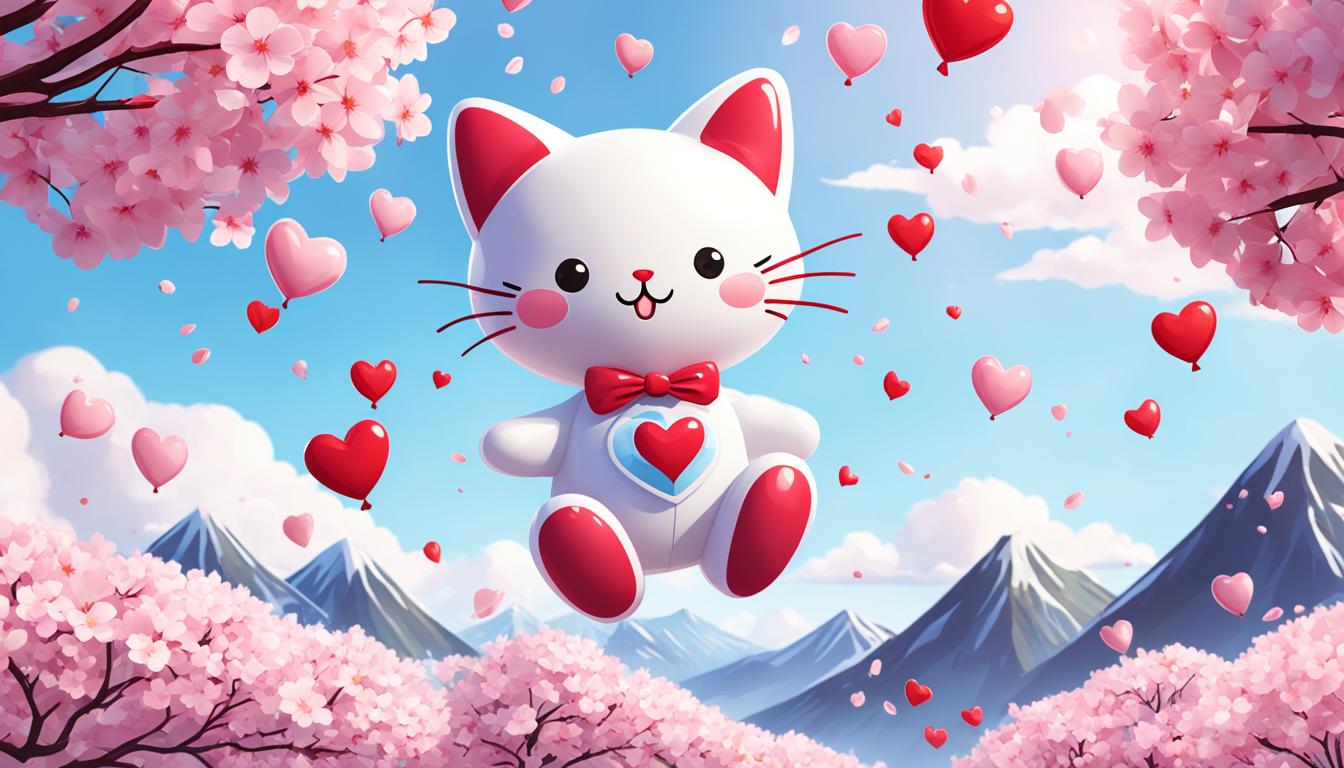Welcome to the wonderful world of Japanese expressions for cuteness! Learning how to say cute things in Japanese can add a touch of charm and sweetness to your interactions. Whether you want to compliment someone or express your affection, Japanese offers a variety of phrases to convey cuteness in a unique way.
In this article, we will explore the meaning, grammar, pronunciation, and cultural usage of cute Japanese words and phrases. Get ready to dive into the adorable world of Japanese language!
Before we begin, let’s take a look at the meaning and grammar behind cute expressions in Japanese. Understanding the structure will help you use these phrases effectively and appropriately.
When it comes to expressing cuteness, Japanese often relies on specific words, grammar patterns, and context. For example, the word “kawaii” (可愛い) is widely used to describe something or someone as cute. It can be applied to animals, objects, and even people.
Next, let’s talk about pronunciation and equivalent words. Pronunciation in Japanese can be a bit challenging, but don’t worry! We’ll guide you through it. It’s important to note that there are no exact equivalents of certain Japanese terms in English, so grasping the cultural meaning behind these phrases is key.
Now, let’s delve into writing these cute expressions in Kanji. Kanji is the system of writing in Japanese using Chinese characters. Knowing the Kanji for cute words can provide a deeper understanding of their origins and cultural significance.
Lastly, we’ll explore the contextual and cultural usage of cute expressions in Japanese. Japan has a rich culture of cuteness, known as “kawaii culture.” It permeates various aspects of society, from fashion to entertainment. Understanding the cultural context behind cute phrases will help you use them appropriately and appreciate their significance.
Now that you have an overview, let’s dive into the delightful world of Japanese cuteness! Get ready to learn how to say cute things in Japanese and spread joy through your words.
How to Say “I Love You”
In Japanese culture, expressing love may not be as direct as in Western cultures with the phrase “I love you.” However, there are several charming ways to convey your love and affection in Japanese. These phrases can be used in different contexts and relationships to express your deepest emotions. Let’s explore some of them:
Aishiteru
The phrase “Aishiteru” carries the deep meaning of “I love you” in Japanese. It represents a profound and intense love, expressing your strong affection for someone.
Suki yanen
A more casual way to say “I love ya” is “Suki yanen.” It is an endearing phrase used to express your fondness for someone in an affectionate way.
Koishii desu
When you strongly yearn for someone, you can use the phrase “Koishii desu,” which translates to “I yearn for you.” It portrays your deep longing and desire to be with that person.
Doki Doki
“Doki Doki” represents the sound of a beating heart and is often used to describe the feeling of being in love. It conveys the excitement and fluttering emotions when you are around someone you adore.
Totemo ai shiteru
To emphasize the intensity of your love, you can say “Totemo ai shiteru,” which means “I love you very much.” It expresses the depth and magnitude of your affection.
Motto ai shiteru
If you want to convey that your love keeps growing stronger every day, you can say “Motto ai shiteru,” which translates to “I love you more.” It signifies the increasing depth of your love for the person.
Comparison of Phrases to Say “I Love You”
| Japanese Phrase | Translation | Expression of Love |
|---|---|---|
| Aishiteru | I love you | Deep and intense love |
| Suki yanen | I love ya | Casual and affectionate love |
| Koishii desu | I yearn for you | Strong longing and desire |
| Doki Doki | Sound of a beating heart | Excitement and fluttering emotions |
| Totemo ai shiteru | I love you very much | Intense and profound love |
| Motto ai shiteru | I love you more | Love growing stronger every day |
How to Express Interest and Likeability
Besides saying “I love you,” there are also ways to express your interest in Japanese. Phrases like “Suki Da” and “Suki Dayo” mean “I like you” and can be used to show romantic interest. “Daisuki” means “I really like you” and conveys a stronger affectionate feeling. Other phrases like “Sukidato Omou” mean “I think I like you” and can be used to express a crush. By using these phrases, you can convey your feelings and show your likeability towards someone.
Non-Verbal Expressions of Love in Japanese Culture

In Japanese culture, expressions of love and affection go beyond words. Non-verbal gestures and actions hold great significance in conveying emotions. To truly connect with someone in Japanese culture, it is important to understand and embrace these non-verbal expressions of love.
Thoughtfulness, known as kizukai, is highly valued. It involves being attentive to the needs and feelings of your loved ones. Whether it’s remembering their favorite meal or anticipating their needs, thoughtfulness shows your love and care.
Caring behavior, referred to as omoiyari no aru kōdō, emphasizes empathy and consideration. It involves being supportive and understanding towards your partner. By actively listening and offering support, you can strengthen the bond between you.
One idiom that encapsulates the essence of non-verbal expressions of love is Fugenjikko, which means “actions speak louder than words.” According to this ideology, gestures and actions have a more profound impact than mere verbal expressions.
To illustrate the concept of Fugenjikko, consider the simple act of preparing a heartfelt meal for your loved one. The effort, time, and care put into this gesture speak volumes about your love and affection.
The Power of Non-Verbal Expressions
| Non-Verbal Expression | Meaning |
|---|---|
| Kizukai | Thoughtfulness and attentiveness |
| Omoiyari no aru kōdō | Caring behavior and empathy |
| Fugenjikko | Actions speak louder than words |
By adopting these non-verbal expressions of love, you can deepen your connection with your partner and strengthen your relationship. Remember, even the smallest gestures can have a profound impact and convey the depth of your love.
Dating Customs in Japanese Culture
Dating in Japanese culture is influenced by unique customs and traditions that shape the dynamics of relationships. Understanding these customs can help you navigate the dating scene and build meaningful connections.
One prominent aspect of Japanese dating is group dates, known as “gōkon.” These gatherings involve multiple couples coming together in a relaxed setting to get to know one another. Group dates provide a comfortable environment for people to interact and potentially find a romantic partner. This tradition emphasizes the importance of social connections and group dynamics in Japanese dating culture.
Traditional values also play a significant role in Japanese dating. Respect and social status hold great importance, and individuals often consider these factors when choosing a partner. The emphasis on traditional values reflects the deeply-rooted cultural norms and expectations in Japanese society.
Another prevalent practice among older generations is matchmaking, known as “omiai.” Matchmaking services help individuals find compatible partners based on various criteria, such as background, interests, and family values. While this practice is less common among younger generations, it still holds significance for many individuals seeking long-term relationships.
With the advent of technology, online dating has gained popularity in Japan, particularly among younger generations. Online platforms offer a convenient way to meet new people and explore potential romantic connections. Just like in other cultures, online dating allows individuals to connect based on shared interests and preferences, opening up new possibilities for finding love.
Understanding and respecting these dating customs in Japanese culture can significantly enhance your dating experience. It allows you to appreciate the traditions and values that shape relationships in Japan, while also embracing the modern aspects of dating, such as online platforms. By immersing yourself in Japanese dating customs, you can create meaningful connections that align with both traditional and contemporary perspectives.
| Dating Customs in Japanese Culture | Group Dates in Japan | Traditional Values in Japanese Dating | Online Dating in Japan |
|---|---|---|---|
| Multiple couples getting to know each other in a relaxed setting | Emphasizes social connections and group dynamics | Respect and social status influence partner selection | Convenient way to meet new people and explore potential connections |
| Significance of traditional values in dating dynamics | Comfortable environment for interaction and finding a partner | Matchmaking services based on background, interests, and family values | Allows individuals to connect based on shared interests and preferences |
| Reflects deeply-rooted cultural norms and expectations | Offers modern possibilities for finding love |
Other Phrases of Affection in Japanese
In addition to saying “I love you,” there are various other ways to express affection in Japanese. Using terms of endearment can add a sweet touch to your conversations and deepen your relationships. Let’s explore some romantic Japanese phrases and expressions of affection.
Terms of Endearment
When addressing a close friend affectionately, you can use terms like “Tomo-chan” or “Tomo-kun.” These terms show familiarity and warmth in your relationship, adding a personal and loving touch to your conversations.
Expressing Closeness and Affection
Expressions like “Anata” and “Nakama” are perfect for conveying closeness and affection in relationships. “Anata” means “you” and can be used to emphasize the special bond you share with your loved one. “Nakama” is a term that carries the meaning of friendship and camaraderie, and using it conveys a deep affectionate connection.
Show Someone They Are Number One
If you want to express that someone is special and important to you, you can use the term “Ichiban,” which means “number one.” This phrase showcases how much they mean to you and highlights their significance in your life.
Expressing a Sibling-Like Bond
When referring to a sibling-like bond, terms like “Onii-chan” (for an older brother) and “Onee-chan” (for an older sister) are commonly used. These words evoke a sense of familial love and can be used to express affection towards someone you consider as a brother or sister.
Deepening Connections
Another term that carries a strong sense of friendship and affection is “Shinyuu.” This word means “best friend” and can be used to express the deep connection and bond you have with someone who is your closest confidant and companion.
By incorporating these phrases into your interactions, you can express your affection and strengthen your relationships with a touch of Japanese charm.
Conclusion
Expressing love and affection in Japanese may differ from Western cultures, but that doesn’t mean you can’t find adorable and heartwarming phrases to convey your feelings. By understanding the cultural nuances and non-verbal expressions of love in Japanese culture, you can build strong and meaningful relationships.
Throughout this article, you have discovered various ways to express love in Japanese, including cute phrases and compliments that can melt hearts. From saying “Aishiteru” (I love you) to using terms of endearment like “Tomo-chan” and “Ichiban,” you now have a toolkit of expressions to bring joy and warmth to your relationships.
Remember, in Japanese culture, non-verbal expressions and thoughtful actions play an important role in conveying love. So, whether it’s through small gestures of kindness or by incorporating these phrases into your conversations, you can express your affection in a way that aligns with Japanese culture.
So go ahead, embrace the Japanese language of love, learn these cute phrases, and spread the love in your relationships. Arigatou!

